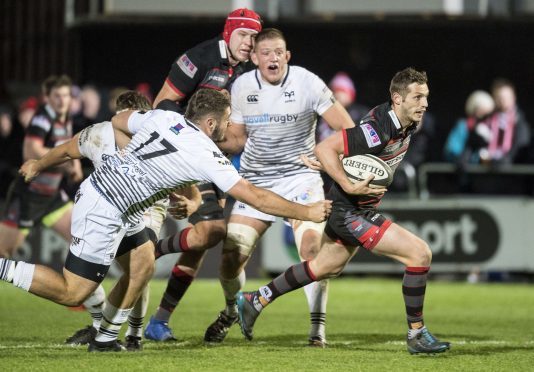Even Richard Cockerill was moved to a proper smile – not his usual sardonic one – as Edinburgh started to look much more like his vision of them at Myreside on Saturday.
The 37-10 defeat of a decent Ospreys team – their fifth win in a row – will get expectations growing again despite the head coach sticking to his instinct to dampen them whenever possible.
“We still have a long, long way to go,” he stressed. “But I’m pleased with that performance, delighted with all the performances over the past five weeks. We are getting better.
“I was very pleased with the second half. I thought that even in the first half, once we got into our rhythm, we were playing some good stuff.
“We have been playing some decent rugby in the last four weeks – Zebre not so much but after that we had a look at ourselves and how we wanted to play and are starting to get that growth.”
But for a few false starts – off the field as well as on it – Edinburgh appear to have arrived at a playing style and a confidence that can finally get the club moving forward. Cockerill’s promised transformation of the club has not been as radical as many supposed, but nonetheless effective.
The chief change in attitude was evident on Saturday night again. Having gone behind 10-3 barely getting a touch of the ball, Edinburgh fans last year would have been sighing a collective “uh oh” in trepidation.
This year, there’s an assurance that the team are made of sterner stuff. They endured 25 phases of Ospreys attack before surrendering a penalty kicked by Sam Davies in 22 minutes, and that was to be the last score the visitors enjoyed. Indeed they didn’t even venture into Edinburgh’s 22 for the remainder of the game.
The key on Saturday was the engine room of the team and their carrying, and Edinburgh’s ability to retain possession.
Skipper Fraser McKenzie, Grant Gilchrist, Luke Crosbie and man of the match Cornell du Preez were simply monumental in taking the ball to the Ospreys, who found themselves defending 30 plus phases themselves and ultimately wilting in the face of the physical challenge.
Edinburgh also have a spark outside the pack, with Jason Tovey enjoying playing behind a pack going forward while 7s reclamation James Johnstone and the maturing Blair Kinghorn offer a defence-breaking cutting edge.
Compare them with Glasgow, who have much more flair as exhibited on Friday night against Leinster but not the same physicality, as the second half of that match showed. On a winter’s night, maybe in the 1872 Cup match at Murrayfield on Boxing Day, you might fancy Edinburgh’s game plan to be the more effective.
The laws as they are now, favouring the team in possession of the ball – through 20 and 30 phases of need be – might suit this Edinburgh side in the long term. A stern examination of where they are comes with a double header in South Africa after the Autumn Tests break, but things are looking up at Myreside.

